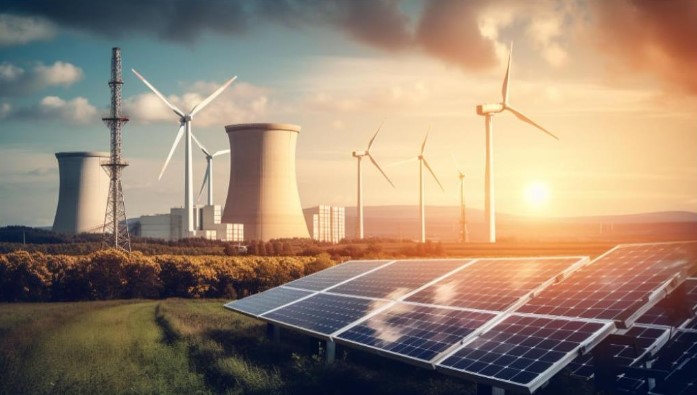“We have a problem. The Ministry of the Environment, Climate and Energy has drafted an energy policy law that does not mention nuclear energy at all,” warns the digital platform Jedrska.si (Nuclear.si), adding that if decarbonisation is the goal, then all low-carbon sources must be considered and used. “The Ministry has failed to do so,” they pointed out.
“The law is not in line with the government’s statements and is unreasonable in several parts,” warns the digital platform Jedrska.si about the law, which has been proposed by the Ministry of the Environment, Climate and Energy and is only open for public debate until the 17th of September.
In the draft Energy Policy Act, which, in 178 articles, sets out, among other things, the principles of energy policy, measures for the management of energy policy, and regulates the competencies, organisation and functioning of the Energy Agency, renewable energy sources are mentioned 71 times. “Gas is mentioned 23 times, coal and coal mining are mentioned 8 times, fossil fuels or their reduction are mentioned 3 times. Nuclear energy is not mentioned even once,” they point out, adding that they came across 4 mentions of low-carbon sources, which are “treated differently from renewable sources.” They say that nuclear energy can be included in this group, but nowhere is it specified which sources exactly are included in which group. “It is precisely this separation of renewables from other low-carbon sources that shows a nonsensical energy policy,” they argue.
Despite increased electricity demand in the future, priority is being given to measures to reduce energy consumption
For four decades, nuclear energy has been contributing to the security of clean energy supply in all seasons, and they find it impossible to understand why this energy is being put at a disadvantage compared to renewable energy sources. “Slovenia has been dependent on imports for its electricity supply for many years. In 2022, we imported 30 percent of our electricity to meet our needs,” they explain, pointing out that expert projections show that as fossil fuel consumption declines and electrification takes hold, the need for electricity will increase. However, the law in question “prioritises measures to reduce energy use over the provision of new energy supply capacity.” Also, only renewable energy sources are given any investment incentives in the law.
The Jožef Stefan Institute has already responded to the bill, which does not take nuclear energy into account. “After a quick reading, it is somewhat strange that, on the one hand, the government, in appointing a commission to manage the new nuclear power plant project, which is a very important element in the construction of a new nuclear power plant, declares nuclear energy to be the country’s most important strategic project, while at the same time, it puts forward for consideration a law that does not mention nuclear energy at all. Whether this is a clerical slip-up or some other message, it is difficult for me to judge,” commented Dr Leon Cizelj, President of the European Nuclear Society (ENS).
“Slovenia urgently needs a strong and stable energy source. Large hydro, thermal and nuclear power plants are the only such sources,” MEP Branko Grims said of the proposed legislation, adding that the government, which is proposing a law without it, is taking Slovenia down the path that led Germany to the economic crisis, which is completely irresponsible towards Slovenia and its citizens.
Slovenia is failing to take a major step towards decarbonisation
As pointed out by Jedrska.si, unlike Slovenia, Sweden has taken an important step towards decarbonisation. It has included nuclear energy in its new energy target. “Instead of “100% renewables”, the target is “100% fossil-free electricity”. Renewables and nuclear energy are equally covered in this,” they explain, critically pointing out how the Slovenian Ministry of the Environment, Climate and Energy, in response to a similar proposal to the government, wrote that it could not do so. “The proposed Energy Policy Act did not do so either, which shows that the Ministry is not serious about decarbonising the electricity sector,” they argue.
“The bill’s sponsor, the Ministry of the Environment, Climate and Energy, has drafted a law aimed at accelerating the phase-out of fossil fuels in final energy consumption. The authors of the law have left out nuclear energy, which, according to the IPCC guidelines, is the key to a rapid and economic decarbonisation of the energy sector. The proposed law, therefore, does not really pursue the original decarbonisation objectives but aims at increasing the capacity of renewable energy sources,” they stress, adding that they believe the law should also include nuclear energy. In case they are not willing to do so, they argue that this will be another law promoting the construction of renewable energy sources.
N. Ž.


